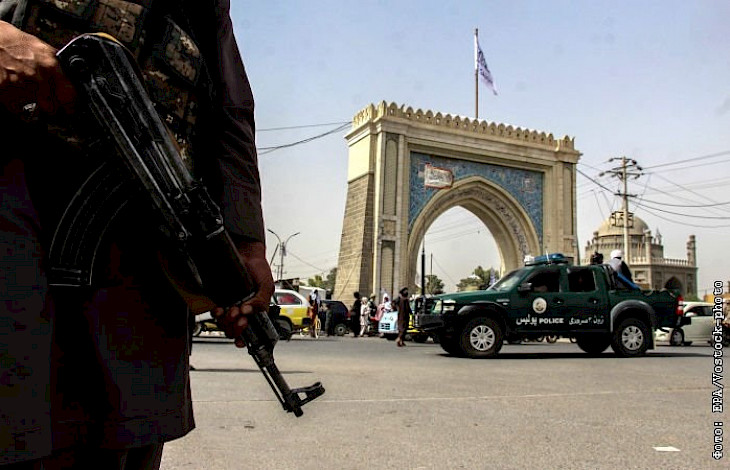At the end of last year, Tajikistan saw a change in its defense leadership. President Emomali Rahmon appointed Emomali Sobirzoda as the new Minister of Defense, replacing Sherali Mirzo, who had held the position since 2013.
Sobirzoda, who was promoted to Major General in 2018, faces several challenges in the military, including illegal conscription, hazing, and a lack of open communication with the public. However, the issues extend beyond this—Tajikistan’s borders are also poorly protected, according to an article by Eurasiatoday.ru.
"Every action has a reaction"
In Tajikistan, authorities closely monitor the situation across the Panj River. Since the sudden withdrawal of U.S. forces from Afghanistan, warnings have emerged from Afghan leaders, urging Tajikistan to stay out of Afghan affairs. These warnings first surfaced in September 2021.
In an interview with Al Jazeera, Abdul Ghani Baradar, then acting deputy head of the Taliban government, stated: "Every action has a reaction."
By the following September, there were reports that Afghanistan was allegedly preparing to attack Tajikistan. Afghan affairs expert Andrey Serenko, citing unnamed sources, claimed that Taliban commanders believed Russia’s struggles in Ukraine had demoralized Moscow, making it unlikely to intervene in new conflicts in the post-Soviet region.
"In other words," Serenko suggested, "the Taliban believe that if a significant militant force invades Tajikistan, Russia is unlikely to provide substantial support to Dushanbe."
While the accuracy of these claims is open to debate, there is supporting evidence. In the same year, Mohammad Naeem Wardak, a Taliban political office representative in Qatar, allegedly stated that the Taliban could occupy Tajikistan within 24 hours if other countries did not intervene.
The possibility of an attack on Tajikistan cannot be ruled out entirely. The Taliban adheres to a strict division between the "territory of Islam" and the "territory of war."
"This is an axiom in Islamic doctrine," said political analyst Amiri Zamon. "Islamists may say one thing, but when the opportunity arises, they will act on this doctrine. Hypothetically, if Russia weakens and loses its role as a security guarantor, the Taliban could be emboldened and pursue their ambitions. Theoretically, this is possible."
The CSTO to the rescue!
In the event of an attack on Tajikistan, the country would receive support through the Collective Security Treaty Organization (CSTO). The member states of the CSTO are aware of the risks posed by a worsening security situation, particularly given the presence of Russia’s 201st military base in Tajikistan, which is significantly better equipped than the Taliban.
The base's arsenal includes Uragan multiple launch rocket systems (MLRS), Iskander-M tactical missile systems, approximately 100 T-72B1 tanks, around 300 armored vehicles of various types—including UAZ Esaul, BMP-2M, and BTR-82A—as well as artillery systems and air defense missile complexes.
The base also controls an anti-aircraft missile regiment equipped with S-300PS air defense systems, received in 2019. Its air wing includes Su-25 attack aircraft, Mi-8 and Mi-24 helicopters, as well as a battalion of unmanned aerial vehicles such as Orlan-10, Eleron-3, and Takhion.
Kazakh political analyst Gaziz Abishev believes that if Tajikistan loses control of the situation, the CSTO will step in.
"There is little doubt that the CSTO will invest in strengthening the Tajik-Afghan border. An increase in the international military presence in Tajikistan is also possible. In the event of a full-scale invasion, allies are likely to provide comprehensive assistance to Tajikistan. Moreover, diplomats from Kazakhstan, Uzbekistan, and other countries are undoubtedly working on relevant measures."
Additionally, CSTO Secretary-General Imangali Tasmagambetov announced that this year, the organization will begin implementing a targeted intergovernmental program to reinforce the Tajik-Afghan border.
"This program has been discussed within the CSTO for over a decade, and on November 28, 2024, it was officially adopted at the CSTO Security Council session in Astana. I must emphasize that this program was approved primarily due to the efforts of Tajikistan’s President, Emomali Rahmon. Without his firm stance, this program would not have been adopted today."
On the other hand, an anonymous source suggested that the recent leadership changes in Tajikistan’s Ministry of Defense are linked to growing tensions within the country’s ruling elite. There could be increasing intra-elite competition and personnel reshuffling in preparation for a potential transition of power.
Whatever the case, time will reveal what truly lies ahead for Tajikistan.
CentralasianLIGHT.org
February 19, 2025

